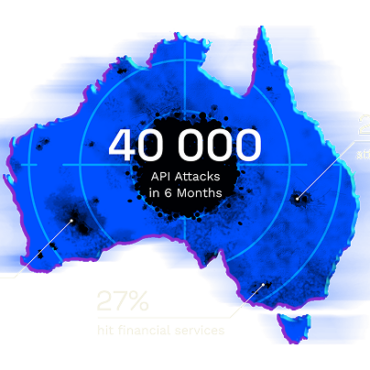The TOP Fintech Companies and Startups in the World
Updated 4 Aug 2022
What is a fintech company?
The word “fintech,” or financial technology, is used to refer to any new product, application, or process created with the goal of enhancing and improving the provision of financial services. What companies are included of fintech? Fintech, a growing sector, is having an expanding impact on industries including banking services, risk management, insurance, and trading and investing. Additionally, it entails creating and trading cryptocurrencies (bitcoin, Ethereum).
Back-end systems and technology used by conventional financial institutions and banks were the only ones covered by the term at first. But today’s financial technology is more customer-centric, emphasizing customized goods and client delight.
Fintech uses cutting-edge technologies like artificial intelligence and big data to help organizations and individual customers manage their finances and financial processes more effectively.
The largest fintech companies in the world
As the biggest fintech companies in the world continue to expand and cross international borders, there are a couple of fintech saas companies that stand above the rest.
Square
Mobile payments and point-of-sale operations are provided by Square, Inc., a financial services and technology business with headquarters in the US. Both the software and hardware aspects of the service are covered.
Square was founded with backing from well-known companies, including Goldman Sachs, Starbucks, and GIC Private Limited, the largest sovereign wealth fund in Singapore. Early investments in the business were made by angel investors like Marissa Mayer and Biz Stone.
Coinbase
The 2017 cryptocurrency boom marked a significant turning point for Coinbase, the largest digital currency exchange in the world. For those who don’t know, Coinbase is a trading website that lets users buy and sell cryptocurrencies like Bitcoin and Ethereum.
The business, which was founded in 2012, has raised over $217 in funding and is supported by seasoned venture capital firms, including Union Square Ventures, Andreessen Horowitz, and Ribbit Capital. Coinbase brought in more than $1 billion in sales last year.
Adyen
Using card networks (like VISA and Mastercard) and regional payment options, Adyen, a fintech startup with headquarters in the Netherlands, enables companies and merchants to accept payments from customers anywhere in the globe. To provide data-rich insights on transactions and business revenue optimization, it uses machine learning techniques.
In 2011, the business began to earn a profit and began global growth by opening new offices in London and San Francisco. In 2015, Adyen processed over $50 billion in transactions, and by 2016, that number had increased to $90 billion.
Stripe
Developers and company owners may safely accept money for their services thanks to Stripe, a payment processing service. Two Irish brothers, Pattrick and John Collison, launched it in 2009. Peter Thiel and Elon Musk, among others, contributed $2 million to Stripe’s first significant fundraising in 2011. (the co-founders of PayPal). The business reached unicorn status after its 2014 valuation surpassed $1 billion.
Ant Financial
The largest financial technology company in the world is Ant Financial, currently known as Ant Group. It was founded in 2014 and is a subsidiary company of the Alibaba Group in China. One of the biggest online payment systems in the world, Alipay, is owned by Ant Financial. Other financial services run by Ant include Zhima Credit, a private credit rating system, and Yu’e Bao, a well-known money market fund.
The most famous Fintech SaaS companies
Cash App
Money management may be challenging, so Cash App is aiming to make it easier to use through its mobile platform. Customers can buy stocks and bitcoin, set up direct deposits, personalize debit cards, and conduct fast transactions. Cash App helps users to take charge of their finances and customize financial tools to suit their needs by putting a variety of financial capabilities at their fingertips.
Robinhood
On a desktop or mobile computer, you can invest for nothing. Robinhood attempts to make investing accessible to would-be traders who can’t quite afford the fees of a regular brokerage firm by not having physical facilities or individual account management services.
Circle
Circle uses digital currency in accordance with the idea that money should be accessible, unrestricted, and secure. Customers can invest in new currencies with the use of its products, which include a large assortment of coins that make it simple to move money across different nations and currencies.
Mojito
An NFT platform called Mojito links users with NFT owners who provide access to premium goods, events, content, and more. Utilizing the Mojito platform, businesses can conduct transactions via cryptocurrency, ACH payments, wire transfers, and other adaptable techniques.
Northwestern Mutual
Although Northwestern Mutual has been successful for more than 160 years, the company continues to embrace new and inventive approaches to serving its clients, who can use online and mobile tools to track their money, explore insurance products, and develop long-term plans. With the help of its digital technologies, Northwestern Mutual has also slashed the time required for the underwriting process to as low as one day, making it simpler for customers to get started with their financial lives.
Why work in Fintech & SaaS?
Working for the fintech top companies can provide many rewards and opportunities to succeed. Whether working for fintech saas startups, established fintech companies in the UK or the fintech world forum, this industry is booming and is attracting many newcomers.
Through their products, fintech firms promote innovation, and this is mirrored in the workplace.
There are several limitations to the fact that fintech companies are typically smaller and less rigid than the established financial services firms (e.g. the company is likely to be less stable and have a higher risk of failing). However, there are a ton of benefits that come with working for the top fintech saas companies in the world!
- Autonomy: You’ll frequently start working at a fintech company in a position that is only vaguely defined. You’re much more likely to have control over how you spend your time and the decisions that are made, and you’ll quickly establish yourself as the authority in a certain area of the organization.
- Complexity: In a tech-enabled business, simple, repeatable processes are readily automated. In other words, the work that people spend their time on typically involves complexity, intellectual stimulation, and business consequence.
- Relationship between effort and reward: In a fintech company, you’ll typically be one of only a few employees performing a position; thus, your diligence will be immediately recognised. The majority of fintech businesses also have stock options, so if the business is successful, you could actually benefit financially from your participation in its development!



